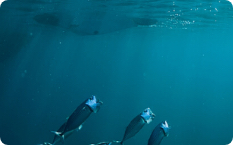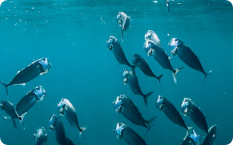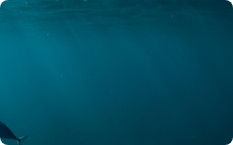Researchers can access to free research services to advance their projects by applying to Aquarius 1st Transnational Call.
This EU project aims to foster research and innovation activities to adress scientific challenges that will help keep our oceans healthy, specifially :
- Protect and restore aquatic ecosystems – Atlantic-Arctic basin
- Protect and restore aquatic ecosystems – Danube River system
- Prevent and eliminate pollution – Mediterranean Sea
- Make the Blue Economy climate-neutral and circular – Baltic & North Sea
| 20 January 2025 | Submission Deadline |
Researchers can access to a wide range of infrastructures for research including research vessels, mobile and fixed marine observation platforms, aircraft, drones, satellites, experimental research facilities, river and basin supersites, and sophisticated data service infrastructures. The extensive geographic and cross-domain scope is possible due to the AQUARIUS network of 45 partners from across 18 countries.
Through Aquarius, EMBRC provides access to ecosystems and services across 5 marine stations in Europe to support protection and restoration of biodiversity.
| Marine station | Country |
| Sorbonne Université - Institut de la mer de Villefranche | France |
| Observatoire Océanologique de Banyuls-sur-Mer France | France |
| Station Biologique de Roscoff | France |
| Centro de Ciencias do Mar | Portugal |
| Interdisciplinary Centre of Marine and Environmental Research | Portugal |
WHAT ARE THE RESEARCH AREAS OF THE CALL?
The thematic and geographic scope of the AQUARIUS Transnational Access Call is related to the concept of the EU Mission Ocean and Waters area-based “Lighthouses” in major sea/river basins:
- The Atlantic-Arctic and the Danube & Black Sea regions focus on protecting and restoring aquatic ecosystems.
- The Baltic & North Sea is focused on making the blue economy carbon neutral and circular.
- The Mediterranean Sea targets preventing and eliminating marine pollution.
WHAT DOES THE CALL OFFER?
- Transnational Access (TA) or Remote Access (RA) will be provided to selected ‘user groups’ (based on eligibility criteria)
- Access to the 57 research infrastructures, including the logistical, technological and scientific support for users, ad hoc user training and the preparatory and closing activities (mobilisation and demobilisation of a research vessel for example) needed to use the installation.
- Users’ own travel, subsistance and logistics costs are covered up to a specified limit. These costs will be reimbursed by the RI Operator or the Operator can incur the costs directly (upon agreement between both parties).
- For transportable research facilities (drones, ROVs, AUVs etc), the transport costs to the work area are covered by the project.
- Each proposal will be logistically evaluated on a case-by-case basis to ensure ‘value for money’ for the project.
WHO CAN APPLY?
- Marine and freshwater researchers from academia, public bodies, industry and civil society organisations are welcome to apply, providing they meet the eligibility criteria.
- The majority of the TA User Group must work in a country other than the country(ies) where the facility is located (unless access is provided by an international organisation, the Joint Research Centre (JRC), an ERIC or similar legal entity).
- Only user groups that are allowed to disseminate their results they have generated under the action may benefit from the access (unless the users are working for SMEs). Access for user groups with a majority of users not working in a EU Member State or Horizon Europe associated country is limited to 20% of the total amount of units of access provided under the grant.
WHAT IS TRANSNATIONAL ACCESS?
Transnational access (TA) provides free access to European research infrastructure services. It requires you to:
- utilise facilities in countries other than your home institution, unless you are requesting access to an ERIC facility, such as AnaEE-ERIC, EuroBioImaging-ERIC, EMBRC-ERIC, EU-Openscreen-ERIC, LifeWatch-ERIC, or MIRRI-ERIC.
- agree that data generated from the chosen services will comply with FAIR principles making it available to other researchers while allowing for IP protection (in line with the EU’s open science policy)
TA can be accessed through 2 means:
- On-site access
- Remote access
More information on Aquarius TA call












